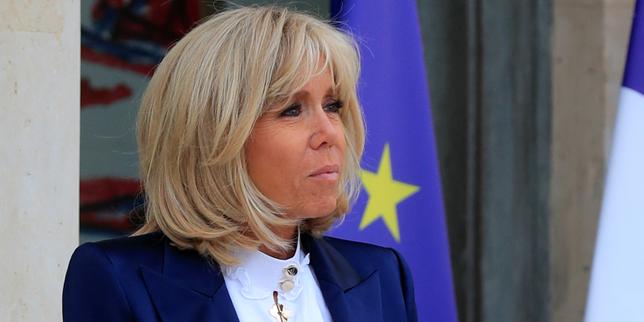Trial Intensifies as Defendants Claim Humor in Cyberharassment of Brigitte Macron
Ten individuals on trial for online harassment against Brigitte Macron claim their actions were humor and satire amid widespread transphobic rumors.
- • Ten defendants in Paris face charges for cyberharassment targeting Brigitte Macron with false transphobic claims.
- • Defendants argue their posts were meant as humor or satire, citing freedom of expression.
- • The harassment has impacted Brigitte Macron's mental and physical health and affected her family.
- • The case highlights transnational spread of misinformation, including lawsuits in the US against amplifiers of the rumors.
Key details
The ongoing trial in Paris of ten individuals accused of cyberharassment against Brigitte Macron, the French First Lady, has highlighted the defendants' arguments and the broader implications of online misinformation. The accused, ranging in age from 41 to 60 and including professionals such as an elected official, gallery owner, teacher, and influencer, face charges related to spreading false and transphobic claims about Macron's gender identity. Despite the malicious nature of the remarks — including derogatory assertions and spreading rumors that Brigitte Macron is transgender — several defendants have defended their actions as "humor," satire, or "information," invoking freedom of expression and "Charlie spirit" in their pleas.
Brigitte Macron filed a complaint on August 27, 2024, triggering an investigation by the Brigade for the Repression of Delinquency Against the Person and subsequent arrests. The false rumors, which have also reached international audiences, notably in the United States, have had a real impact on Macron's well-being and her family, with reports that her grandchildren heard claims that "their grandmother is a man."
Among those on trial are influencer Aurélien Poirson-Atlan, known as Zoé Sagan, scrutinized for previous controversial actions and conspiracy theorist ties, and Delphine Jegousse (aka Amandine Roy), who disseminated a lengthy viral video propagating the gender claim and has exercised her right to silence. The charges include cyberharassment and the spread of misinformation with potential prison sentences of up to two years. The trial also underscores the growing intersection of far-right conspiracy narratives in France and the United States, where the Macrons have pursued legal action against American figures, including Candace Owens, for amplifying the falsehoods.
The presiding judge has noted the significant deterioration in Brigitte Macron's physical and mental health caused by the online attacks. As the trial proceeds, it continues to raise challenging questions about freedom of expression, the limits of satire, and the responsibilities related to online speech and misinformation.
This article was translated and synthesized from French sources, providing English-speaking readers with local perspectives.
Source articles (2)
Source comparison
Trial commencement date
Sources disagree on the start date of the trial.
lemonde.fr
"The trial is ongoing as of October 28, 2025."
aljazeera.com
"The trial commenced on October 27, 2025."
Why this matters: Source 1 states that the trial is ongoing as of October 28, 2025, while Source 2 claims the trial commenced on October 27, 2025. This is significant as it affects the timeline of events surrounding the trial.
Defendant details
Sources provide different names for one of the defendants.
lemonde.fr
"One defendant is referred to as Delphine J."
aljazeera.com
"One defendant is named Delphine Jegousse, also known as Amandine Roy."
Why this matters: Source 1 refers to a defendant as Delphine J., while Source 2 names her as Delphine Jegousse, also known as Amandine Roy. This discrepancy could lead to confusion regarding the identity of the individuals involved in the case.
Latest news
French Public Sees Rise in Political Violence Amid Pre-Municipal Election Tensions
Businesses Drive French Economy Amid Rising Financial Challenges for Youth
France Climbs to 4th Place in 2026 Winter Olympics Medal Table After Biathlon Relay Gold
XV de France to Field Largely Unchanged Lineup Against Italy in Six Nations
France and India Deepen Strategic Partnership with Focus on AI Regulation and Defense Cooperation
Data Breach Exposes 1.2 Million French Bank Accounts, Authorities Warn of Fraud Risks
The top news stories in France
Delivered straight to your inbox each morning.


